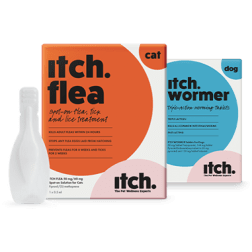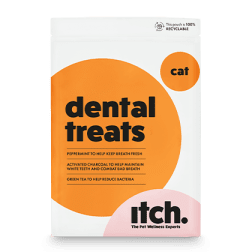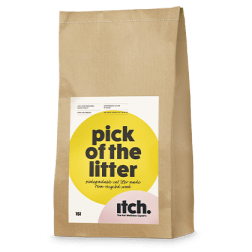Itch Blog
From keeping them protected from parasites to taking care of their wider health needs, we’ve got a range of practical tips, step-by-step guides and expert insights to keep your furry sidekick at their brilliant-yet-bonkers best.
Our Top Picks
Flea
Treatment

How To Get Rid of Fleas
Fleas – those pesky little insects that can turn our furry companions' lives (and ours) upside down. If you've ever experienced a flea infestation, you know just how frustrating and uncomfortable it can be. These tiny creatures are not only a nuisance but can also pose health risks to both pets and humans. In this comprehensive guide, we'll explore the world of fleas, from understanding their origins to effective methods for getting rid of them. So, if you're tired of the itching, scratching, and constant battle against the blighters, read on to discover how to reclaim your home and your pet's comfort.
Ticks
Identification

What Are Ticks and Where Do They Come From?
Ticks, those small yet potentially dangerous parasites, have a knack for making a big impact on our pets' health and our peace of mind. Understanding what ticks are, where they come from, where they live, and the potential dangers they pose to our furry companions is crucial for effective prevention and management. This post explores their origins, habitats, and the risks they bring to pets. Let's uncover the secrets of these tiny arachnids and learn how to protect our pets from their harmful effects.
Worming
Treatment

How to give your cat worming treatment - without the drama!
As any cat owner will tell you, cats really don’t like to do what we ask of them at the best of times. This can be especially true where worming tablets are concerned! As much as your cat might hate taking their wormer (and as much as you might hate being the one who has to administer it) the reality is that they have to take it.
Without regular worming, cats are at risk from tapeworms, roundworms and other nasty worm parasites that can make both them and your family really poorly.
Latest Articles
Flea
General

‘Flea Gate’: How Boris Johnson should have handled Downing Street
Annoying, blood-sucking creatures in Downing Street? - And no,we’re not talking about politicians. In Liz Truss’ recently released memoir, she claims Number 10 was infested with fleas thanks to Boris Johnson’s poor little dog, Dilyn. Clearly he didn’t have a subscription to Itch. Showing us the ex Prime Minister was clueless in the face of a flea infestation. We’re here to help you get more clued up than Bojo. Here’s what to do if you find yourself the unlucky target of a flea infestation, and more importantly, how to stay one step ahead.
Flea
Identification

Can Pet Fleas Live on Human Hair?
Ah, the infamous flea – the tiny but mighty nuisance that can turn a peaceful household into a mess of itching and scratching. These minuscule pests may be small in size, but they pack a big punch when it comes to causing discomfort for both our pets and us humans. Let's jump into the world of fleas and uncover whether these critters can become a roommate to our hair!
Ticks
Treatment

Will Ticks Fall Off on Their Own?
Ah, the great outdoors! Most of us love nothing more than a brisk walk in the countryside or a run around in the park with our furry companions. But along with the joys of nature come some pesky nuisances, one of which is the humble tick. These tiny, blood-sucking creatures may be small, but they can cause big problems for both pets and their owners if left unchecked.
Ticks
Prevention

How to Keep Them Out of Your House
Ticks are pesky little creatures that can not only wreak havoc on your pets but also invade your home if given the chance. It’s important to know what attracts ticks to your house, where they hang out in your homes, and most importantly, how to get rid FOR GOOD!
Ticks
Treatment

Temperatures Ticks Don't Like
Ah, the British weather – a topic that never fails to spark conversation. From scorching summer days to frosty winter mornings, we Brits love to discuss our dull climate. But did you know that our weather isn't just a talking point? It also plays a crucial role in the lives of some less welcome guests – ticks.
Does cold affect ticks? Can you use heat to kill ticks? What are the temperatures that kill ticks? Let’s jump into the world of ticks, and answer all the questions you might have.
Ticks
General

Ticks in summer - be prepared!
Ah, the joys of Summer – long dog walks in the evening, weekend naps in the sun with your cat, and unfortunately, the return of pesky ticks. Despite being tiny, ticks can pose a real threat to both us and our pets.
Flea
General

Can Fleas Eventually Kill a Pet?
Ah, the pesky little critters known as fleas - the bane of every pet owner's existence. These minuscule blood-suckers may seem insignificant at first glance, but don't let their size fool you. Fleas are not just annoying; they can pose serious health risks to our beloved furry friend if left unchecked.
Fleas are tiny insects that thrive on the blood of mammals, including our cherished pets. They can easily infest our homes and latch onto pets, nestle in their fur and cause a handful of problems if not dealt with promptly and properly.
Flea
Identification
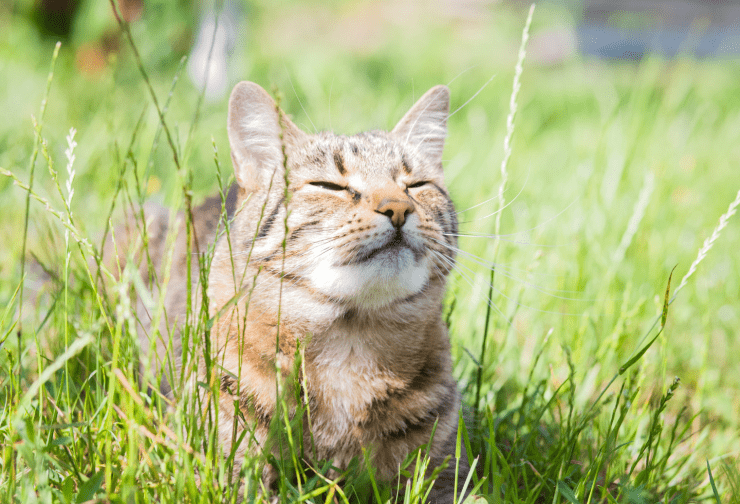
Flea droppings - A sign of infestation?
Ah, the notorious flea. Just the thought of them is enough to make your skin itch. If you're a pet owner or have ever encountered these tiny, pesky critters, you know the struggle is real. But what about flea droppings?
Flea
General

Flea facts - 7 Things To Know About Fleas
EW, fleas! Tiny, persistent pests that can turn your pet's life into an itching nightmare and leave you feeling like you're in a battle you just can't win. Whether you're a seasoned pet owner or a newcomer to the world of fluff everywhere, understanding the ins and outs of fleas is crucial. Read on to learn our top 7 facts on fleas, how to prevent them and how to treat fleas if you do unfortunately get struck by an infestation.
Flea
Treatment
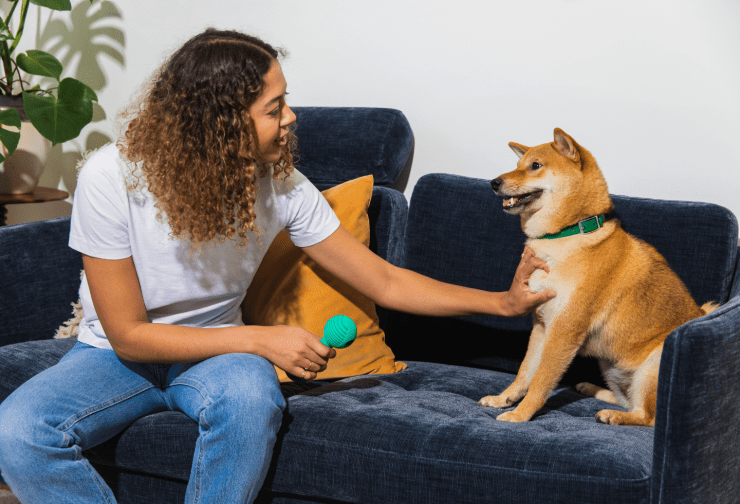
Flea Treatments - Spot On vs Shampoo vs Collar
Ah, the bane of every pet owner's existence: fleas. Those tiny, jumping nuisances can wreak havoc on both your furry friend and your home. Don’t worry, there are many options to remove fleas, but which is the best for you? Read on to learn all about flea treatments, what preventatives are out there and what we at Itch, recommend.
Worming
Identification

What Are The Ingredients In Pet Worming Tablets
The ever so interesting topic of worms, said no one ever. Let’s cut the cr*p, as pet owners worming your animal is not at all that glamorous and it can be a task we very easily forget. As much as this might be the case, doing right by our pet comes first and knowing a little bit more about boring old worms will help you act fast to prevent any serious issues (and of course sky high vet bills).
Itch Insights
Pet Wellbeing

Understanding Anxiety In Dogs
Let's talk about a topic that's close to many of our hearts: anxiety in dogs. Our furry friends can experience stress and anxiety just like us, and as responsible pet parents, it's essential to understand the signs, treatments, and ways to alleviate our canine companions' anxiety.
Flea
Identification

How To Prepare For Flea Season This Spring
As Spring blooms and the weather warms up, it's that time again... Peak flea season. These pesky pests can jump on your pets and really make themselves at home, but with the right preparation and preventive measures, they can be kept at bay. We all want a happy and itch-free home for ourselves and our pets, so let’s dive into how to prepare and prevent fleas this Spring!
Flea
Identification
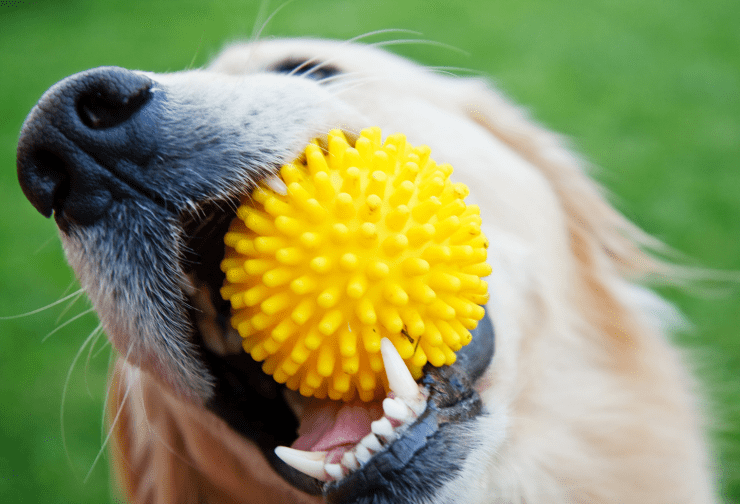
What Does A Flea Bite Look Like?
In this article, we'll embark on a journey to understand the intricacies of flea bites, explore the telltale signs, and equip you with the knowledge to spot these tiny intruders. So, grab a cuppa, settle in with your pet, and let's unravel the itchy mysteries of flea bites together.
Ticks
Treatment
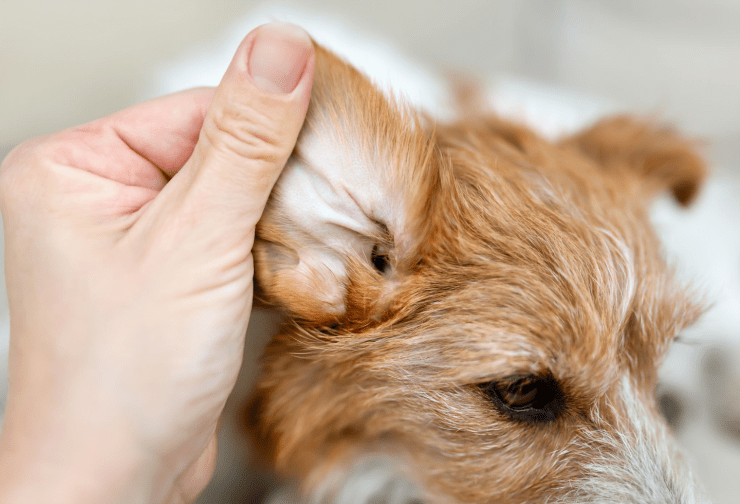
How To Remove A Tick From A Dog’s Ear
Removing a tick from our pet can be a tricky task and it’s not every day that you have to remove one of these tiny bloodsuckers from your dog’s ear. As the warmer months approach, it's essential to be prepared for tick season and knowing how to handle parasites. Ticks can pose major health risks to dogs, and removing them quickly is crucial to prevent potential complications. Let’s help keep your furry friends healthy, happy and tick-free!
Itch Insights
Pet Wellbeing

Labradors At 5 Years Old - Understanding Hypothyroidism
As our beloved labs hit the milestone of 5 years old, it's essential to stay vigilant about their health. Here we'll talk you through Hypothyroidism - a condition which often affects Labs, and many common medium-large dog breeds. It can have significant impacts on your pup's well-being, so let's explore what it's all about and how to navigate it together.
Itch Insights
Pet Wellbeing

Labradors At 2 Years Old - Understanding Dental Disease
Hey Lab lovers! Let's talk about a crucial aspect of our furry friends' health: dental care. As our Labradors hit the ripe age of 2, they become particularly susceptible to dental disease. A dog's lifespan can be shortened by 1-3 years if they get dental disease, so it's essential to pay close attention to their dental health to ensure they lead happy and healthy lives. So, grab a biscuit (for you or your Lab, your choice!) and let's delve into the world of dental disease in Labs together!
Worming
Identification

Can Pets Get Worms From Fleas?
The relationship between these pesky parasites can be puzzling, but fear not – in this article, we'll uncover the truth behind the connection between fleas and worms and explore how you can protect your beloved pets from these unwelcome intruders!
Itch Insights
Pet Wellbeing

Understanding Cat Anxiety & Stress
If you've ever noticed your cat acting a bit more withdrawn, hiding away, or engaging in unexpected behaviours, you might be witnessing the subtle signs of cat anxiety and stress. This article will unravel the mysteries behind feline stress, explore the telltale signs, and introduce a magical solution – pheromone diffusers.
Flea
Identification

Are Fleas And Ticks The Same Thing?
If you've ever found yourself wondering whether fleas and ticks are one and the same, you're not alone. These tiny creatures often cause confusion due to their similar size and the discomfort they bring to our furry friends. Fear not, we’ll explain what makes fleas and ticks unique, how to distinguish between them, and most importantly, how to effectively treat and prevent these persistent pests.
Flea
General

New Pet Owners Guide To Flea Treatment & Prevention
In this guide tailored for new pet owners, we'll navigate the world of flea treatment and prevention, covering the specific needs of your puppy or kitten, guidelines for adult dogs and cats, crafting a flea treatment schedule, and why the age-old adage 'prevention is better than cure' holds true in the realm of fleas. So, grab a cuppa, snuggle up with your furball, and let's embark on this flea-fighting adventure together.
Flea
General

Pet Flea Treatments - Are They Safe For Humans?
Today, we’re exploring the various types of flea treatment available, addressing the burning question – are they safe for humans? Join us as we unravel the safety web, covering what happens if you come into contact with flea treatments, whether they are safe to ingest accidentally, and crucially, how to handle these treatments safely. So, let's dive in and demystify the safety aspects of pet flea treatments.
Flea
Prevention

Fleas Aren’t Just For Summer - Why Winter Flea Treatment Is Key
This article dives into what happens to fleas in winter, dispel the myth that pets are safe from flea invasions during the colder months, delve into the cosy relationship between fleas and warm houses in winter, and, most importantly, discuss why maintaining flea treatment in winter is an absolute must. So, grab a cuppa, snuggle up with your furry friend, and let's unravel the secrets of winter flea prevention.
Flea
Identification

How Do Cats Get Fleas?
So how do cats get fleas? Join us on this itchy expedition as we dive into the world of fleas, explore their elusive lifecycle, uncover the covert ways they latch onto our furry friends, identify their favourite hangouts, and, most importantly, discover how to liberate our cats from these not-so-welcome hitchhikers.
Flea
Identification

How Do Dogs Get Fleas?
Today, we're demystifying the age-old question: How do dogs get fleas? Join us on this itch-scratching journey as we explore what fleas are, their sneaky lifecycle, how they hitch a ride onto our furry friends, where they love to hang out, and, most importantly, how to bid them a not-so-fond farewell.
Worming
Treatment

How To Kill Worms For Good
Worms can sneak into our furry friends' lives, causing discomfort and potential health issues. But fear not! Here, we explore what worms are, how they invade our pets, a variety of ways to bid them farewell, the role of Itch Pet in this battle, and essential tips for preventing worms.
Flea
Treatment

How To Kill Fleas For Good
The persistent presence of fleas can have a knack for making our pets' lives itchy and uncomfortable. But fear not! This article explores the ins and outs of these persistent pests and unveils the secrets to killing fleas for good.
Worming
Treatment

Worms In Pets - Signs, Symptoms and Treatments
Worms are tiny troublemakers that can sneak into our pets' lives, causing discomfort and potential health issues. Fear not, though! This article explores the signs, symptoms, treatments, and preventive measures to ensure your furry companions live their best, worm-free lives.
Itch Insights
Pet Wellbeing

How To Stay Flea Free In 2024
With flea infestations up 47% in 2023, it’s important to get yourself prepped for 2024 to keep your pets, home and self happy and healthy! This article gives you our top tips on how to prevent these pesky parasites from taking over 2024.
Itch Insights
Pet Wellbeing

47% Increase In Flea Infestations In 2023... Why?!
2023 is the year of the flea! With infestations up 47% in 2023, it is more important than ever to keep your beloved pets and home protected against these pesky parasites!
Ticks
Treatment

What Is Dog Tick Paralysis (And Should You Be Worried)?
This article delves into a topic that may sound ominous but is essential for every responsible pet owner to understand – dog tick paralysis. Join us as we navigate through the intricacies of dog tick paralysis, from its overview to symptoms, causes, treatment, recovery, and most importantly, how to prevent this concerning condition. Let's embark on this informative journey together!
Ticks
Treatment

4 Tick Removal Myths We've Busted!
Greetings, pet enthusiasts! We're on a mission to demystify the world of tick removal. Ticks, those tiny but troublesome arachnids, can be a real concern for our furry friends. This article bust some common tick removal myths and equips you with the knowledge you need to properly and safely handle these persistent pests. Let's dive in!
Ticks
Identification

All You Need To Know About Hard Ticks (Ixodidae Tick)
Today, we're exploring the world of hard ticks, members of the Ixodidae family. Join us as we unravel the mysteries surrounding these arachnids, from their various types to their life cycle, and discover how to treat and prevent encounters with these stealthy creatures.
Ticks
Prevention

Where Are Ticks Found Most In The UK?
We're embarking on a journey through the UK's landscapes to uncover the secret hideouts of those tiny but formidable foes – ticks. Join us as we explore what ticks are, why they're a concern for our beloved pets, and pinpoint the specific regions where these persistent arachnids are found most in the UK. Buckle up, and let's embark on a tick-tracking adventure!
Ticks
Prevention
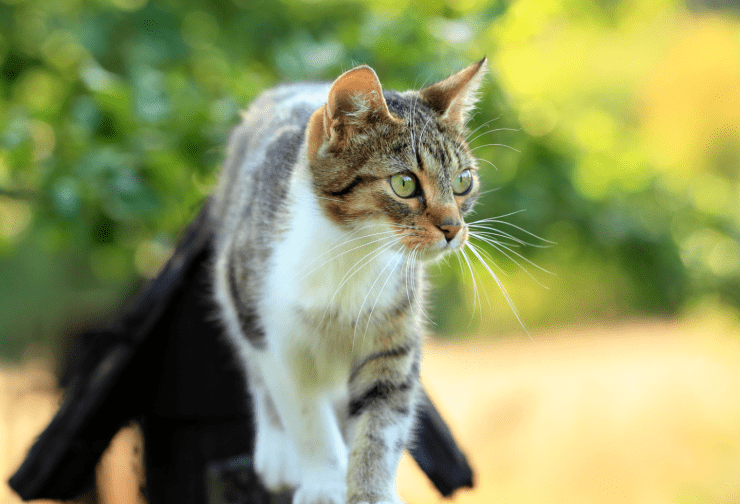
What To Look For In A Good Prevention Spray
Greetings, fellow pet enthusiasts! Today, we're embarking on a journey into the world of tick prevention sprays – those magical elixirs designed to shield our furry companions from those ticks. Join us as we explore the intricacies of ticks, understand how tick prevention works, dissect the essential components of a good tick prevention spray, and discover why our Itch Flea Home Spray (kills ticks and lice - triple whammy!) stands out in the crowd.
Ticks
Prevention

The Animals That Can Pass Ticks & Fleas To Your Pet
Today, we're delving into the clandestine world of tick and flea transmission among our beloved pets. Our four-legged companions can unwittingly become hosts to these pesky parasites through encounters with other animals. Here, we uncover the creatures that play a role in tick and flea transmission, and learn how to protect our furry friends from these sneaky invaders.
Ticks
Identification
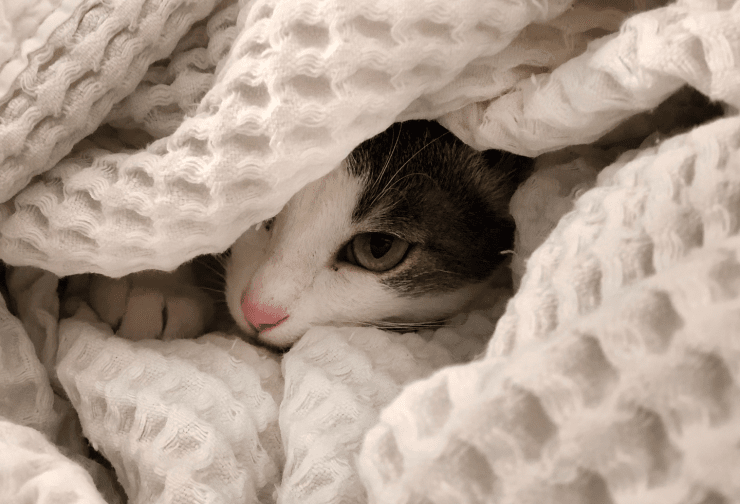
Top Places Ticks Hide on Your Pets
Welcome, fellow pet detectives! Today, we're embarking on a mission to uncover the secret hiding spots of those elusive ticks. Ticks and pets, it's a tale as old as time, and as responsible pet owners, it's our duty to know where these little critters like to play hide and seek. This article reveals the top places they cunningly conceal themselves on your beloved furry friends.
Ticks
Treatment
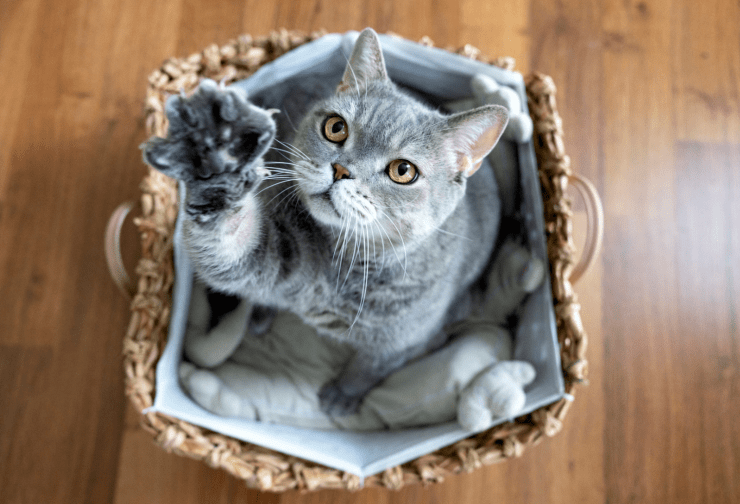
How To Dispose Of A Removed Tick
Ticks can turn a peaceful stroll into a health concern for our furry friends. While much is said about the importance of removing ticks, the question of what to do with these unwelcome hitchhikers once they've been ousted often remains unanswered. Here we delve into the world of tick disposal, exploring the best ways to bid farewell to these persistent pests and how to prevent their unwelcome return.
Ticks
General

Do Ticks Jump?
The world of ticks is a miniature realm filled with mysteries, and as pet owners, it's only natural to wonder about their peculiar habits. One burning question that often pops up is, "Do ticks jump?". This post looks at the intricacies of tick behaviour as we explore what ticks are, how they find their way onto our beloved pets, and the truth behind the jumping myth.
Ticks
General

What Are The Active Ingredients In Tick Sprays?
The great outdoors – a haven for adventure, but also a battleground against tiny but formidable foes: ticks. To navigate this skirmish successfully, many pet owners turn to tick sprays. But what exactly goes into these magic potions? This article talks you through the common tick spray ingredients, their purposes, and how they differ, uncovering the secrets of keeping those persistent arachnids at bay.
Ticks
General

Can Humans Get Ticks?
Ticks can turn a pleasant outdoor adventure into a potential health concern. While we often associate ticks with our furry friends, the question lingers: Can humans get ticks? Let's delve into the world of ticks, unravel their habits, and explore how we can protect ourselves and our pets from these persistent little arachnids.
Ticks
General

Fleas vs Ticks - All You Need To Know!
Fleas and ticks – the unwelcome guests that can turn your pet's paradise into an itchy battleground. While these tiny adversaries share a common goal of making our pets uncomfortable, they have distinct characteristics and behaviours. Let's dive into the world of fleas and ticks, unravelling the mysteries of these miniature pests.
Ticks
Identification

Finding A Dead Tick On A Dog - What Should You Do?
Ticks can turn a peaceful walk in the countryside into a nerve-wracking experience. These stealthy creatures are not just a nuisance; they can pose health risks to our beloved dogs. Ticks are commonly found in wooded areas, tall grasses, and even our own backyards. Understanding how to deal with ticks, dead or alive, is crucial for the well-being of our canine companions.
Flea
General
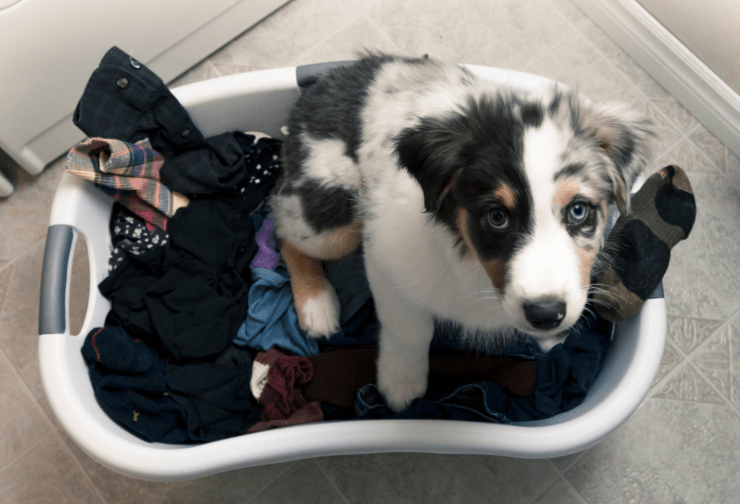
Can Pet Fleas Live On Clothing?
Fleas are a nuisance of the best times when on your beloved pets, but even more so if they make the leap to you! This article gets you up to speed with the flea lifecycle, answers the burning question of can fleas live on clothing? And how to get rid of the blighters and stop them making an unwelcome return!
Flea
Treatment

What To Do If Your Pet Has Fleas And Sleeps In Your Bed?
Fleas can turn your cosy home into an itchy battleground, especially when they decide to share your bed with your furry friend… three’s definitely a crowd! This article gives you all the best tips for how to deal with a duvet stealing pooch who’s also fighting fleas!
Flea
General

Can Cats Be Allergic To Fleas?
Fleas can turn a cat's peaceful existence into an itchy nightmare. While the mere thought of these pesky critters is enough to make any cat owner shudder, it's crucial to delve into the impact fleas can have on our feline friends. In this guide, we'll explore how fleas affect cats, how to spot them on your furry companion, and the pressing question – can cats be allergic to fleas?
Flea
Identification

How To Spot Fleas In Your Carpet
Spotting fleas in your carpet may seem like a tricky task, given their size and knack for hiding. In this guide, we'll explore how to detect these tiny troublemakers, what fleas look like, and, most importantly, how to bid them a not-so-fond farewell.
Flea
General

Can Dog Fleas Jump To Humans?
Let's talk about fleas (*groan*) the tiny, agile creatures that can turn a peaceful pet-filled home into a buzzing hub of discomfort. If they’re on your dog, does that mean they can get onto you too?! This article reveals all…
Flea
Identification

Can A Puppy Get Fleas?
The wonderful world of puppies… the boundless energy, the adorable antics, and, yes, the potential for pesky fleas. Fleas are tiny but mighty nuisances that can make your puppy's life less enjoyable. This article explores the possibility of puppies getting fleas, how it can happen even if they don't venture outdoors, and, most importantly, how to prevent and treat these unwanted critters.
Flea
Identification

Can An Indoor Cat Get Fleas?
While most of us associate fleas with outdoor adventures, the question is… can an indoor cat get fleas? The surprising answer is yes! Fleas are agile little creatures, and even the most pampered indoor kitties are not entirely immune to their unwelcome presence. In this article, we'll explore the world of fleas, how indoor cats can get them, and most importantly, how to prevent and treat these pesky invaders.
Worming
Identification

Hookworm Lifecycle - What Is It and How Does It Impact Your Pet?
There are many different types of worms that can sadly cause problems for our pooches and feline friends - this post talks all about hookworm so you’ll know exactly what you're up against and how to prevent your pets from having a nasty run in with it!
Worming
Identification

Whipworm Lifecycle - What Is It and How Does It Impact Your Pet?
There are lots of different types of worms that can cause problems for our pooches and feline friends - in this article we’ll talk all about whipworm so you’ll know exactly what you're up against and how to stop your pets from having to deal with it!
Worming
Identification
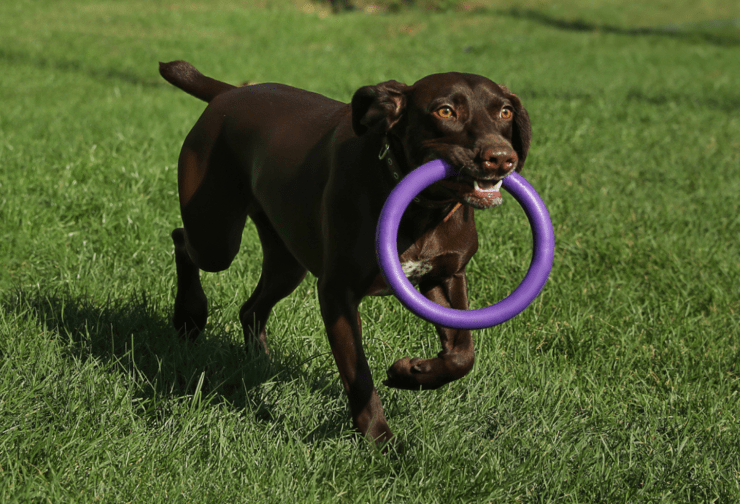
Roundworm Lifecycle - What Is It and How Does It Impact Your Pet?
There are a few main types of worms that can cause problems for our pets - here we’ll discuss the ins and outs of roundworm so you’ll know exactly what you're up against and how to prevent your pets from having to deal with it!
Worming
Identification

Heartworm lifecycle - What Is It and How Does It Impact Your Pet?
Sadly, there are many different types of worms that can cause problems for our cats and dogs - in this article we’ll discuss heartworm in detail so you’ll know exactly what you're up against and how to prevent your pets from having to deal with it hopefully!
Ticks
Identification

Are Ticks Still A Problem For Your Pet In Winter?
Ticks are those tiny yet troublesome creatures that are well-known for the potential health risks they pose to our beloved pets. But as winter arrives, many pet owners wonder if they can breathe a sigh of relief, thinking that ticks hibernate until spring. So, are ticks still a problem for your pet in winter? Let's delve into this tickly topic.
Flea
Treatment

Why You Should Continue To Use Flea Treatment In Winter
We all know fleas love the heat! But sadly this doesn’t mean they disappear in the winter… This article tells you everything you need to know about those pesky parasites during the colder months.
Worming
Treatment

Does Every Kitten Need Worming?
Kittens, those bundles of fur and energy, are a delight to have in any home. But as with any pet, their health and wellbeing should be a top priority. Worming is an essential aspect of kitten care, but questions often arise about when and how often it should be done. In this article, we'll explore the world of kitten worming, answering the question: does every kitten need worming? We'll discuss the specific needs of kittens, when and how to worm them, and when it's time to stop. By the end, you'll have a clear understanding of how to keep your adorable fluff ball worm-free.
Worming
Identification

What Are The Types Of Worms Found In Our Pets And Should You Be Worried?
Worms can silently invade our beloved pets' bodies and are a concern for every pet owner. But what exactly are these worms, and should you be worried? Here, we'll delve into the world of worms in pets, exploring the common types of worms that can affect them, the symptoms and causes, potential health issues, and why prevention is the key to keeping your furry friend healthy. We'll also introduce our Itch Worming Tablets and their benefits. By the end, you'll have a comprehensive understanding of the importance of worm prevention for your pet's well-being.
Worming
Treatment

How Long Do Worming Tablets Take To Work?
Worms are definitely not something you want hanging around your pets. To keep your furry friend healthy and happy, you turn to worming tablets. But have you ever wondered how long it takes for these tablets to do their job? This article discusses the whole world of worming tablets, exploring common ingredients, shedding light on our Itch Worming Tablets and answering the burning question: how long do worming tablets take to work? By the end, you'll have a better understanding of what to expect when you're worming your pet.
Itch News
Products & People

We’re Here to Kill Fleas…Not the Environment
Receiving and applying your Itch flea treatment monthly, all year round, is absolutely essential to ensure that your pets are flea free, forever.
So, it’s important that we package our products as sustainably as possible because we send out a lot of them!
Ticks
Treatment

How To Remove Tick Head Stuck In Pet
Ticks, those tiny bloodsuckers, can become an unexpected hitchhiker on your pet's fur. Removing them properly is crucial to avoid potential health risks. But what if you've removed a tick, and its head is still embedded in your pet's skin? This article dives into the world of tick removal, exploring what happens when you try to remove a tick, why tick heads get stuck in pets, the potential dangers, and how to safely and effectively remove ticks for good. By the end, you'll have the knowledge and confidence to tackle tick removal with ease.
Flea
Treatment

Do Natural Flea Treatments Actually Work?
Fleas, the tiny terrors that can turn your pet's life into an itchy, uncomfortable ordeal. When faced with a flea infestation, many pet owners seek solutions that are safe and natural. But do these natural flea treatments actually work? In this blog post, we'll discuss the world of natural flea remedies, exploring common options, assessing their effectiveness, and discovering which ones are worth considering. We'll also introduce you to Itch Flea treatment and explain why it’s so fab as an effective preventative treatment. By the end, you'll have a clearer understanding of whether natural flea treatments are the right choice for your furry friend.
Flea
Treatment

Does Flea Shampoo Actually Work?
Fleas can turn your pet's life into a scratching frenzy. When you're faced with a flea infestation, you want a solution that works, and fast. One option many pet owners consider is flea shampoo. But does flea shampoo actually work? In this blog post, we’ll explore shampoos, how they are supposed to work, their effectiveness, and alternative methods for treating fleas. By the end, you'll have a clearer understanding of whether flea shampoo is the right choice for your furry friend.
Flea
Treatment Issues

Why Does My Pet Keep Getting Fleas?
Fleas – they're the pesky little critters that can turn your pet's life into an itchy nightmare. If you've found yourself repeatedly dealing with fleas on your furry friend, you're not alone. If you’re sat wondering why does my dog keep getting fleas? Why does my cat keep getting fleas? Then wonder no more! In this blog post, we'll dive into the world of fleas, exploring what they are, what attracts them to your pet, and the various factors that contribute to this persistent problem. We'll also discuss how to treat fleas permanently, with a focus on Itch Flea treatment to help you prevent and protect your pets. By the end, you'll be armed with the knowledge to keep those fleas at bay for good.
Flea
Treatment
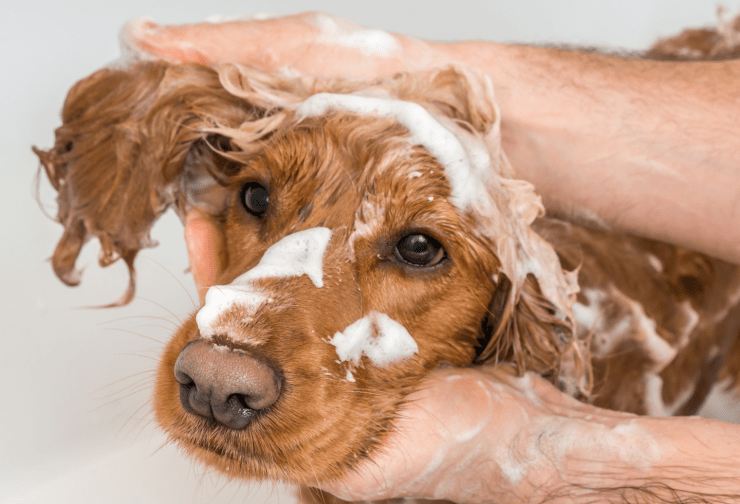
Should You Bathe a Pet With Fleas?
Fleas, the bane of every pet owner's existence. When you suspect your furry friend has these tiny terrors, you might wonder if giving them a good bath will do the trick. Should you bathe a pet with fleas? In this blog post, we'll dive into this question, exploring the nuances of dealing with fleas and bathing your pet. We'll discuss whether your pet actually has fleas, the pros and cons of bathing them, what to do after treatment, and how to prevent future flea infestations. By the end, you'll have a clearer picture of when and how to bathe your poor flea-afflicted pet.
Flea
Identification

How Long Do Fleas Live & Do You Still Have Fleas After Treatment?
Fleas, those tiny but persistent pests, can be a real nuisance for pets and us owners. When you discover a flea infestation, you want them gone, pronto! But how long do fleas live, and do you still have fleas after treatment? In this article, we'll explore the lifespan of fleas, what happens to them after treatment, whether all treatments kill fleas immediately, and what to do if you can't seem to get rid of these pesky little critters. By the end, you'll have a better understanding of the flea lifecycle and how to effectively deal with flea infestations… easy peasy, bye-bye fleasy!
Worming
Treatment Issues

Is Your Pet Unwell After Worming Tablets?
As responsible pet owners, we all want the best for our furry friends. Regular health check-ups, a balanced diet, and proper grooming are all part of ensuring our pets live their best lives.
One essential aspect of pet care is deworming, which helps protect our furry friends from internal parasites that can cause a range of health issues. However, have you ever noticed that your pet seems unwell after taking those worming tablets?
In this post, we'll explore the common concerns related to worming tablets and your pet's health, addressing topics like the time it takes for worming tablets to work, potential side effects, and how to help your pet feel better.
Worming
Prevention

Why You Need to Deworm your Pet Regularly and How to Do it
Intestinal worms - those nasty wrigglers can be a real bother and be unsafe for your family. Fortunately, you can prevent this being a problem with a regular pet worming regime.
Follow our advice on regularly deworming your cat or dog and you’ll be saying sayonara to those slimy little ringworms, tapeworms, whipworms and lungworms and hookworms in no time.
Itch Insights
Pet Wellbeing

How Often Should you Wash your Dog?
You love your dog - that's a given - but at times, they’re probably the most gross creature you’ve ever met. From rolling around in poop in the woods to burying dead seagull carcasses at the beach, they don’t do themselves any favours in the smell department!
In these cases it’s smart to stick them straight in the bath as soon as you get home. But how do you know when to give them a bath the rest of the time?
Flea
Treatment

How to Use a Household Flea Home Spray
So, you’ve found fleas on your pet. Bad news: this means that they’re also highly likely to be in your home too.
The good news is that the combination of your gold-standard, Itch Flea treatment and Itch Flea Home Spray will get rid of those fleas in no time.
Itch Flea Home Spray as a one-off will kill adult fleas that are in your home. It will also prevent any new fleas from hatching for up to 12 months.
Don’t forget, once you’ve finished annihilating the adult fleas in your home, you need to stay up-to-date up with your monthly Itch Flea treatment for your cat and Itch Flea Treatment for your dog to keep your home and your pet flea-free forever.
Itch Insights
Pet Wellbeing

How to Keep Your Cat Cool in the Summer
Just like us humans, many cats enjoy spells of warmer weather! However, they can also overheat and risk developing complications such as heat stroke. Cats more at risk of illness as a result of the mercury rising include very old or young cats, cats with a dense, fluffy coat and those with pre-existing medical conditions.
Felines with flat faces (you might hear these being referred to as brachycephalic breeds) like Persian cats and Scottish folds also have a harder time regulating their temperatures because of their shorter nasal passages.
Fortunately, there are plenty of things you can do as a cat parent to keep your puss comfortable and extra chill in warm weather!
Itch Insights
Pet Wellbeing

How to Weigh Your Dog at Home
Keeping an eye on your dog’s magic number (the ideal weight for their breed and age) is super important.
If you know your dog’s weight, it's easier to work out things like how much food they should eat, or the amount of flea or worm treatment to give them. Getting the right treatment is the safest and most effective way to prevent your dog getting fleas or worms.
Itch Insights
Humour

What Your Pet's Sleeping Position Really Means
According to our research, two thirds (65%) of British pet owners will share the bed with their cat or dog tonight. It’s understandable. It can be hard to resist those puppy-dog eyes, or that loving purr when our pet's come to settle in for the night.
But did you know that by observing our pet's sleeping position, we can tell a lot about the special pet-owner bond we share with them?
We wanted to know more, so asked 2,000 Brits to reveal the 10 most common sleeping positions we adopt with our four-legged friends, and enlisted the help of leading animal behaviourist, Professor Peter Neville to give us insight into their meaning.
Itch Insights
Pet Wellbeing

Pheromone Diffusers for Cats - How Do They Work?
Not all cats are cool cats all the time. If your kitty is showing signs of stress or anxiety, there’s one method that’s been proven to help them feel safe, happy and relaxed, and that’s a plug-in pheromone diffuser for cats.
Flea
Treatment

How to Apply Itch Flea Treatment to your Dog
Amazing news! When applied correctly, Itch Flea Treatment for dogs is 100% fast and effective at killing fleas on dogs and puppies!
However, the 'when applied correctly' bit is pretty important.
We know it's not always that easy, so we've put together a quick guide on the best way to apply Spot-On Flea treatment to your dog or puppy.
Flea
Treatment
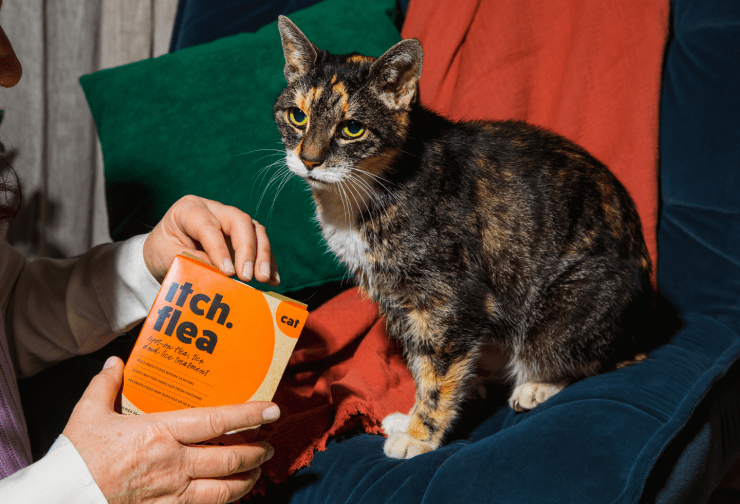
How to Apply Itch Flea Treatment to your Cat
Great news! When applied correctly, Itch Flea treatment for cats is 100% fast and effective at killing fleas on cats and kittens!
However, the 'when applied correctly' bit is quite important…
We know it's not always that easy, so we've put together a quick guide on the best way to apply Spot-On Flea treatment to your cat or kitten.
Itch Insights
Pet Wellbeing

Pet Af-furmations - Itch creates a unique audio calming experience for pets and humans
At Itch, not only do we provide award winning flea, tick and worm solutions, and a range of other pet health and well-being products, we also offer Itch Insure giving our subscribers up to 17% off their pet insurance.
Worming
Treatment

How to give your cat worming treatment - without the drama!
As any cat owner will tell you, cats really don’t like to do what we ask of them at the best of times. This can be especially true where worming tablets are concerned! As much as your cat might hate taking their wormer (and as much as you might hate being the one who has to administer it) the reality is that they have to take it.
Without regular worming, cats are at risk from tapeworms, roundworms and other nasty worm parasites that can make both them and your family really poorly.
Flea
Treatment Issues

Why is my pet still scratching after applying a Flea Treatment?
Not all flea treatments are created equal. Itch Flea is a double action spot on treatment that not only contains Fipronil but also (unlike lots of other flea treatments), (S) Methoprene. This means that it not only targets the adult fleas feeding on your pets and kills them dead in 24 hours (and ticks in 48 hours), it also targets flea eggs and larvae, stopping the fast and furious flea life cycle dead in its tracks.
We asked in-house Itch vet, Dr. Zoe Costigan to give us the lowdown on why your cat or dog might still be scratching after applying a flea treatment to your pet. Here's what she had to say:
“It’s fairly normal for there to be a period of hyperactivity amongst the fleas as the active ingredients in a flea treatment take effect and this can cause an increase in your pet scratching. It should settle down after 24 hours. If after 24 hours your pet continues to scratch, there could be other things going on. Your pet could be flea-allergic, it could have a skin infection or a hormone imbalance, or other conditions which can lead to itchiness.”
Worming
General

How Do Pet Worming Tablets Work
Pet worming tablets are an integral part of maintaining your furry companion's health and well-being. These tiny yet powerful medications play a crucial role in preventing and treating worm infestations in dogs and cats. But have you ever wondered how pet worming tablets work? Look no further as we delve into the world of deworming tablets, exploring their mechanisms, effectiveness, and the options available for both dogs and cats. We'll also address the perennial question of tablets vs. liquid dewormers and explore natural worming alternatives. By the end, you'll have a clear understanding of how these treatments work to keep your pets healthy and thriving.
Worming
Treatment

Does Every Puppy Need Worming?
Welcoming a new puppy into your home is an exciting and joyous occasion. As a responsible pet owner, you want to ensure that your furry bundle of joy grows up healthy and happy. One aspect of puppy care that can't be overlooked is worming. But does every puppy need worming? Below we'll explore the world of puppy worming, addressing whether puppies need more or less worming than adult dogs, when and how often you should worm a puppy, and even provide a helpful puppy worming calendar to keep your newest family member thriving.
Worming
Treatment
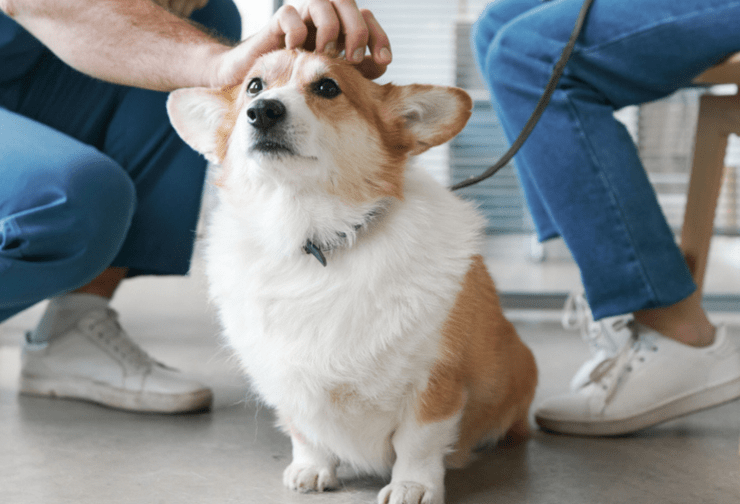
How Often Should You Worm Your Pet?
Intestinal worms are no picnic. They can cause a whole host of health problems in your pets including diarrhoea, tummy pain, weight loss and anaemia. In extreme cases, they can even be fatal. As if that’s not bad enough, they can also do some serious damage to people too! But how often should you worm your pet? The answer depends on various factors, including the type of pet, their age, lifestyle, and risk of exposure. This post explores how often you should worm both cats and dogs. We'll also discuss whether puppies and kittens require more frequent worming and provide some ideal worming schedules to keep your pets healthy and thriving.
Worming
Identification

How to Know If Your Pet Needs Worming
Worming is a crucial aspect of pet care which ensures that our furry companions stay healthy and free from the discomfort of worm infestations. As responsible pet owners, it's important to know when our pets need worming and to understand the signs that may indicate the presence of worms. In this post, we'll explore the subtle signs of worm infestations, discuss specific considerations for both cats and dogs, and address the question of whether worming should be done regularly. By the end, you'll have a better understanding of when to take action to keep your pets worm-free and thriving.
Worming
Identification

What Are Worms in Pets?
Worms are sadly a common concern for pet owners. These parasites can infest our furry companions, leading to discomfort and potential health issues. Here we'll unravel the world of worms in pets, addressing what they are, what causes them, whether all dogs and cats need worming, how to treat worm infestations, and most importantly, how to prevent them. By the end, you'll be equipped with the knowledge to keep your pets super healthy and worm-free.
Ticks
Identification

The Different Types of Ticks You Need to Be Aware Of
These parasitic creatures can transmit diseases and cause discomfort for our beloved furry companions. But did you know that ticks come in various types and colours? In this post, we'll dive into the world of ticks, exploring the different types you need to be aware of. From white and black ticks to brown ticks, we'll also discuss ticks on humans, the risks of embedded ticks, and effective tick removal and treatment methods. By the end, you'll have a clearer understanding of the tick landscape and how to keep yourself, your pets, and your loved ones safe.
Ticks
Prevention

How to Prevent Ticks on Pets
These bloodsucking pests can transmit diseases and cause discomfort for our beloved furry companions. The good news is that with the right knowledge and proactive measures, you can significantly reduce the risk of tick infestations. In this post, we'll explore the world of tick prevention for pets. From understanding ticks and their lifecycle to implementing preventive strategies for both dogs and cats, we'll equip you with the tools to keep your pets safe and tick-free all year-round.
Ticks
Treatment Issues

Which Tick Treatment Is Best - Shampoo, Tablets, or Sprays?
When it comes to protecting our pets from ticks, there's no shortage of options on the market. Tick treatment products range from shampoos and tablets to sprays and collars. With the well-being of our furry friends at stake, it's crucial to understand the different types of tick treatments available and weigh their pros and cons. In this post, we'll dive into the world of tick control, exploring the benefits and drawbacks of tick shampoo, tablets, sprays, collars, and even the innovative Itch Flea treatment. By the end, you'll have a clearer understanding of which tick treatment might be the best fit for your pet's needs.
Ticks
General

How Long Do Ticks Stay on Pets For?
Understanding how long ticks stay on pets is so crucial for effective tick control and the overall well-being of our furry companions. Here, we delve into the world of tick lifecycles, explore the lifespan of ticks, discuss how long ticks can stay on pets, debunk common misconceptions about tick survival, and provide some insights into preventing tick infestations altogether. Let's uncover the secrets of tick duration on pets and equip ourselves with the knowledge to protect our beloved animals.
Ticks
Treatment

What Can Kill Ticks at Home - Do Home Remedies Work?
Dealing with ticks at home can be a cause for concern, especially when you're keen to keep your pets and family members safe. While ticks might be tiny, their potential health risks are significant. In the quest for tick control, many turn to home remedies, seeking natural solutions to eliminate these pests. This post explores what truly kills ticks at home, delves into common home remedies, and addresses the burning question: Do these remedies actually work? Additionally, we'll provide insights into tick treatments that have been proven effective. Let's unravel the world of tick control and find out if home remedies are up to the task!
Ticks
Treatment

How to Remove Ticks from Pets and Stop Them Coming Back
Knowing how to safely and effectively remove ticks from pets is key for their well-being. These parasites can cause a huge host of bother for us humans and our furry companions so it’s super important to have the right knowledge to sort those buggers out! Here, our in-house vet Zoe will guide you through the best treatment for ticks; the process of removing ticks from your pets, including embedded ticks and tick heads stuck in the skin. We’ll also explore ongoing tick treatment and prevention strategies to ensure these troublesome critters don't come back. Let's dive into the wonderful world of tick removal and protection for your beloved pets.
Ticks
Identification

What Are Ticks and Where Do They Come From?
Ticks, those small yet potentially dangerous parasites, have a knack for making a big impact on our pets' health and our peace of mind. Understanding what ticks are, where they come from, where they live, and the potential dangers they pose to our furry companions is crucial for effective prevention and management. This post explores their origins, habitats, and the risks they bring to pets. Let's uncover the secrets of these tiny arachnids and learn how to protect our pets from their harmful effects.
Ticks
Identification

What Are the Symptoms of Ticks on Pets?
Ticks are those tiny arachnids that sink their strong jaws into our beloved pets’ skin, and whilst they may be small, their impact can be huge and lead to a range of health issues. Recognising the symptoms of ticks on your pets is crucial for their well-being. This post explores the symptoms of ticks on both dogs and cats, discusses how to spot these symptoms, delves into potential tick-borne diseases, and provides guidance on what to do if you spot ticks on your furry companions. Let's uncover the secrets of identifying tick-related symptoms and keeping your pets fighting fit!
Ticks
Identification
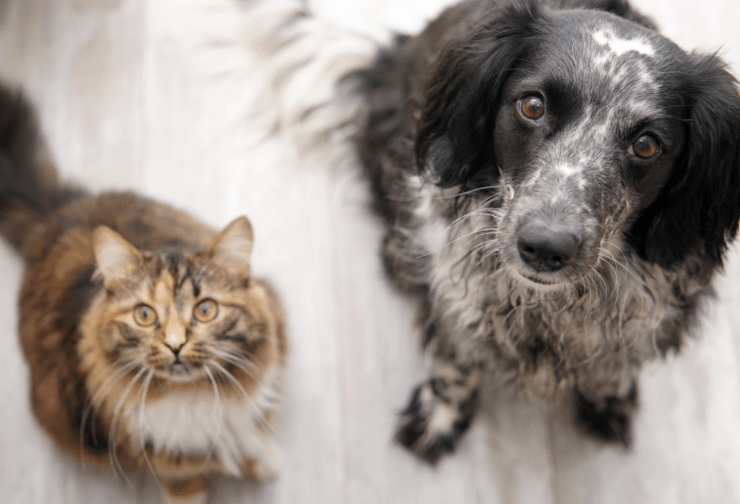
What Do Ticks Look Like on Pets?
The closest thing you’ll find to a real life vampire are ticks, those pesky parasites that can attach themselves to your beloved pets and cause a host of health issues. These blood-sucking arachnids are not only uncomfortable for your furry friends but can also transmit diseases. Recognising the appearance of ticks on your pets is essential for their well-being. Here we look into what ticks are, how to spot them on your dogs and cats, share pictures so you can easily identify them, discuss effective tick treatment options, and explore preventive measures. Let's uncover the secrets of identifying ticks and keeping your pets tick-free.
Flea
General

What is the Flea Lifecycle and How Can You Break It?
Fleas can turn into a massive headache for us pet owners. Understanding the flea lifecycle is crucial to effectively fighting off infestations and keeping your pets and home flea-free. Here we’ll look into the four stages of the flea lifecycle; egg, larvae, pupae and adult — and explore how you can break this cycle to eliminate these bothersome critters. Let's uncover the secrets of the flea lifecycle and learn how to reclaim a comfortable environment for both you and your furry companions.
Flea
Prevention

How To Prevent Fleas in Dogs and Cats
Fleas, those tiny, relentless creatures, can turn into a major annoyance for our beloved pets. Not only can they cause discomfort with their itchy bites, but they can also lead to more serious health issues if left unchecked. The key to keeping your furry friends flea-free is prevention. In this post we'll focus on why your dog or cat might keep getting fleas, what to do when your pet itches but you can't see fleas, and most importantly, effective strategies for preventing fleas in the first place. Let's get started by creating a comfortable and flea-free environment for your furry companions.
Flea
Treatment Issues

What To Do If You Can't Get Rid of Fleas After Treatment
Dealing with a flea infestation can be a frustrating and exasperating experience, especially when you've tried everything but the fleas just won't seem to go away. It's a common scenario: you've diligently applied flea treatments, cleaned your home, and taken all necessary precautions, yet those persistent pests continue to bother your pets and invade your living space. If you find yourself in this situation, don't lose hope. Here we'll delve into the reasons behind failed flea treatments, how to identify signs of treatment resistance, and explore effective solutions to finally bid those relentless fleas farewell.
Flea
Treatment

How To Get Rid of Fleas
Fleas – those pesky little insects that can turn our furry companions' lives (and ours) upside down. If you've ever experienced a flea infestation, you know just how frustrating and uncomfortable it can be. These tiny creatures are not only a nuisance but can also pose health risks to both pets and humans. In this comprehensive guide, we'll explore the world of fleas, from understanding their origins to effective methods for getting rid of them. So, if you're tired of the itching, scratching, and constant battle against the blighters, read on to discover how to reclaim your home and your pet's comfort.
Flea
Identification

What Do Fleas Look Like?
Fleas, those pesky little creatures that can cause so much trouble for our beloved pets, are often hard to spot with the naked eye due to their tiny size. However, understanding what fleas look like is essential for effective prevention and treatment. Here, we explore the appearance of fleas, including pictures of fleas, their size, and the distinct features that differentiate dog fleas from cat fleas. We will also take a closer look at flea eggs and highlight other bugs that may resemble fleas, helping you to identify and deal with these nuisances.
Flea
General

The Vital Information You Need to Know About Peak Flea Season
As pet owners, we all know that fleas can be a pesky and persistent problem. These tiny parasites can infest our furry friends, causing discomfort and potential health issues if left unchecked. Fleas are most active during certain periods of the year, which we commonly refer to as the "peak flea season." Here, we dive into the crucial information you need to know about when fleas are most active, when they come out, and whether they prefer hot or cold weather conditions. Armed with this knowledge, you'll be better equipped to protect your beloved pets and your home from these bothersome critters.
Itch News
Itch Ambassadors

All About Itch Ambassadors
Itch Ambassadors are the highest ranking pets in the Itch Pack. These hand-picked special envoys have great faces, floofy coats and an appetite for the very best! And you, their trusty human, creates top quality content that shows them off at their very best. We see you and we appreciate your efforts.
Flea
Treatment

Fleas - Signs, Symptoms and Treatments
We're tackling a topic that every responsible pet owner should be well-versed in – fleas. Join us as we explore the signs, symptoms, treatments, and prevention strategies to ensure your pet's well-being and your home's peace. Let's dive into the fascinating world of fleas!
Flea
Identification

Fleas Or Mites - What Is Causing My Dog’s Itchy Ears?
If you've noticed your furry friend scratching at their ears incessantly, you might be wondering what's causing all that discomfort. Itchy ears can be a sign of various issues, but two common culprits are fleas and mites. In this blog post, we'll delve into the differences between fleas and mites, how they affect our dogs' ears, and most importantly, how to alleviate your pup's itchiness and prevent future infestations. Let's get started!
Ticks
Identification

How To Prepare For Ticks In Spring
As the seasons change and spring approaches, it's time to gear up for the return of tick season. Ticks can be a nuisance for both pets and humans alike, but with the right preparation and preventive measures, you can keep your furry friends safe and tick-free. In this post, we'll take a closer look at ticks, tick season, and how you can prepare for the upcoming influx of these pesky parasites. So, let's dive in and get ready to tackle tick season head-on!
Worming
Identification

What Do Worms In Pets Look Like?
Have you ever wondered what those pesky worms lurking in your pet's system actually look like? Well, you're in luck! This article explores their appearance, symptoms, treatments, and prevention methods.
Worming
Treatment

Should I Use Dewormer When My Pet Is Pregnant?
If you're expecting a litter of kittens or have a pregnant pooch in your care, you might be wondering about the safety of deworming treatments. Deworming is a crucial aspect of pet care, but when it comes to pregnant pets, there are understandable concerns about the potential risks. Fear not – in this article, we'll shed light on the best practices for keeping both mum and her babies healthy.
Worming
Identification

Does Raw Meat Cause Worms In Dogs?
Today, we're diving into a topic that's often surrounded by myths and misconceptions: whether raw meat causes worms in dogs. Worm infestations are a common concern for pet owners, and the debate over the role of raw meat in causing them has been ongoing. So, let's separate fact from fiction and explore the truth behind this issue, along with effective treatments and preventive measures to keep your furry friend healthy and worm-free.
Worming
Treatment

When Should I Deworm My Pet?
Deworming is an essential aspect of pet care, but knowing when to administer these treatments can be puzzling. Here, we’ll run you through best practices for deworming your pet so you’re all in the know for next time it comes around!
Worming
Treatment

How To Give Your Pet A Worming Tablet
In this article, we'll uncover the secrets to successfully giving your pet a worming tablet. So, grab your pet's favourite treat, muster up your courage, and let's embark on this adventure together.
Worming
Treatment

Do Indoor Cats Need Worming?
Just because your cat prefers the cosiness of a home at all times, does this mean they still need worming? This article will tell you all you need to know!
Flea
Identification

What Are The Black Specs In My Pet's Fur?
Have you noticed some black specs in your pet’s fur, do they look a little bit like specs of dirt? We’ll tell you all you need to know here!
Worming
Identification

Tapeworm Lifecycle - What Is It and How Does It Impact Your Pet?
There are many different types of worms that can cause problems for our beloved pets - in this article we’ll talk all about tapeworm so you’ll know exactly what you're up against and how to prevent your pets from having a nasty run in with it!
Worming
Identification

Worms In Your Pets - How Do They Get There?
Here we’ll explore what worms and intestinal parasites are, the various ways our pets can unwittingly become hosts, how to effectively treat worm infestations, and, most importantly, how to create a fortress to prevent these unwelcome guests. Let's navigate the intricate world of intestinal invaders and ensure our furry friends stay happy and healthy.
Flea
Treatment

Flea Injections For Cats And Dogs
There are many many options for flea treatment these days, which can be overwhelming as a pet parent to say the least! This article takes a look at flea injections and uncovers the pros and cons of this flea treatment.
Flea
Treatment

What Type Of Flea Treatment Is Best For Your Pet?
The market is brimming with choices, each promising to be the magic wand that banishes those pesky fleas. In this guide, we'll demystify the world of flea treatments, comparing the merits of spot-on treatments, flea collars, tablets, and flea shampoo. So, grab a cuppa, gather your furry sidekick, and let's navigate the flea battleground together.
Flea
Treatment

The Different Active Ingredients In Flea Treatments
Here we’ll explore the world of flea treatment ingredients, focusing on the formidable duo of Fipronil and (S) Methoprene, as well as exploring just Fipronil, Imidacloprid and the realm of prescription-strength solutions. So, let's decode the secrets behind effective flea control so you can live that flea free life!





